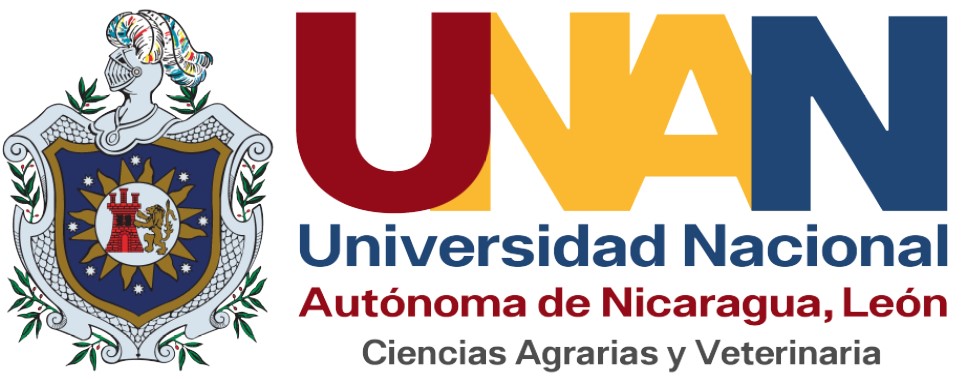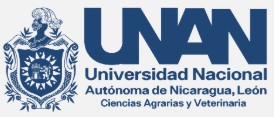Water resources management
DOI:
https://doi.org/10.5377/ribcc.v2i1.5703Keywords:
Water resources management, Climate change, Resilience, Climate variabilityAbstract
The present work is based on results presented by specialists in water resources on experiences of the sectors most vulnerable to drought and those that demand quality water taking as reference the coffee zones of the north of Nicaragua. Based on a compilation of existing information as well as interviews and participatory workshops using territorial dialogue platforms with the objective of identifying the most probable trajectories that could decrease the vulnerability of coffee producers (Coffea arabica) to climate change and variability. In the conclusions of the study, we mentioned that the multi-strata coffee production technology with banana is a subject widely studied using an approach that applies decision-making tools to manage the productivity of the system - light resource management, nutrient cycles and banana optimization as a secondary crop, among others. It is necessary to develop an innovative participatory process to improve the management of water resources in coffee-growing communities to increase their capacity for adaptation and resilience in the face of climate change (variability of rainfall and droughts).
Downloads
Metrics
References
Altamirano, M. (2009). Distribucion de la contaminación natural por Arsénico en las aguas subterráneas de la subcuenca suroeste del Valle de Sébaco. Maestría thesis, Universidad Nacional Autónoma de Nicaragua
Calberto, G., Staver, C., & Siles, P. (2015). An assessment of global banana production and suitability under climate change scenarios. Climate change and food systems: global assessments and implications for food security and trade. Rome: Food Agriculture Organization of the United Nations (FAO).
Campos Ortiz, M. (2000). Escenarios climáticos y socioeconómicos de Nicaragua para el siglo XXI. Ministerio del Ambiente y los Recursos Naturales, Managua (Nicaragua).
Étienne, M. (Ed.). (2013). Companion modelling: a participatory approach to support sustainable development. Springer Science & Business Media.
Fortescue, J. A., Turner, D. W., & Romero, R. (2011). Evidence that banana (Musa spp.), a tropical monocotyledon, has a facultative long-day response to photoperiod. Functional Plant Biology, 38(11), 867-878
https://doi.org/10.1071/FP11128
Martin-Breen, P., & Anderies, J. M. (2011). Resilience: a literature review. The Rockefeller Foundation. New York.
Olsson, P., Folke, C., & Berkes, F. (2004). Adaptive comanagement for building resilience in social-ecological systems. Environmental management, 34(1), 75-90.
https://doi.org/10.1007/s00267-003-0101-7
Siles, P., Bustamante, O., Deras, M., Matute, O., Aguilar, C., Rojas, J., ... & Staver, C. (2010). Bananos en cafetales con árboles en América Latina: estrategias preliminares para mejorar su productividad, rentabilidad y sostenibilidad. XIX Reunión Internacional ACORBAT. Medellín, CO.
Smith, A., & Stirling, A. (2010). The politics of social-ecological resilience and sustainable socio-technical transitions. Ecology and society, 15(1).
https://doi.org/10.5751/ES-03218-150111
Staver, C., O. Bustamante, P. Siles, P. Talavera, D. Brown, H. Garming, L. Pocasangre, G. Soto. 2010. Bananas and agrobiodiversity in Mesoamerican agricultural landscapes. 6th Henry A. Wallace Conference. Agrbiodiversity in Mesoamerica - from Genes to Landscapes. Turrialba, Costa Rica. 20-24 September.
Siles, P., Aguilar, C., Quinde, K., Castellón, J., Somarriba, F., Tapia, A., ... & Bustamante, O. (2011, October). Intercropping bananas with coffee and trees: prototyping agroecological intensification by farmers and scientists. In VII International Symposium on Banana: ISHS-ProMusa Symposium on Bananas and Plantains: Towards Sustainable Global Production 986 (pp. 79-86).
Downloads
Published
How to Cite
License
Copyright (c) 2018 Revista Iberoamericana de Bioeconomía y Cambio Climático

This work is licensed under a Creative Commons Attribution-NonCommercial-ShareAlike 4.0 International License.
Copyright © 2025 Rev. iberoam. bioecon. climate change. National Autonomous University of Nicaragua León (UNAN-León), Knowledge Area of Agrarian and Veterinary Sciences / Specific Area of Agroecology and Agribusiness / Center for Research in Agrarian Sciencies. Academic Directorate. Research Department. Publication and scientific events Unit.












 EDITORIAL
EDITORIAL e-ISSN
e-ISSN


 COPYRIGHT
COPYRIGHT This work is licensed under a Licencia Internacional
This work is licensed under a Licencia Internacional 












